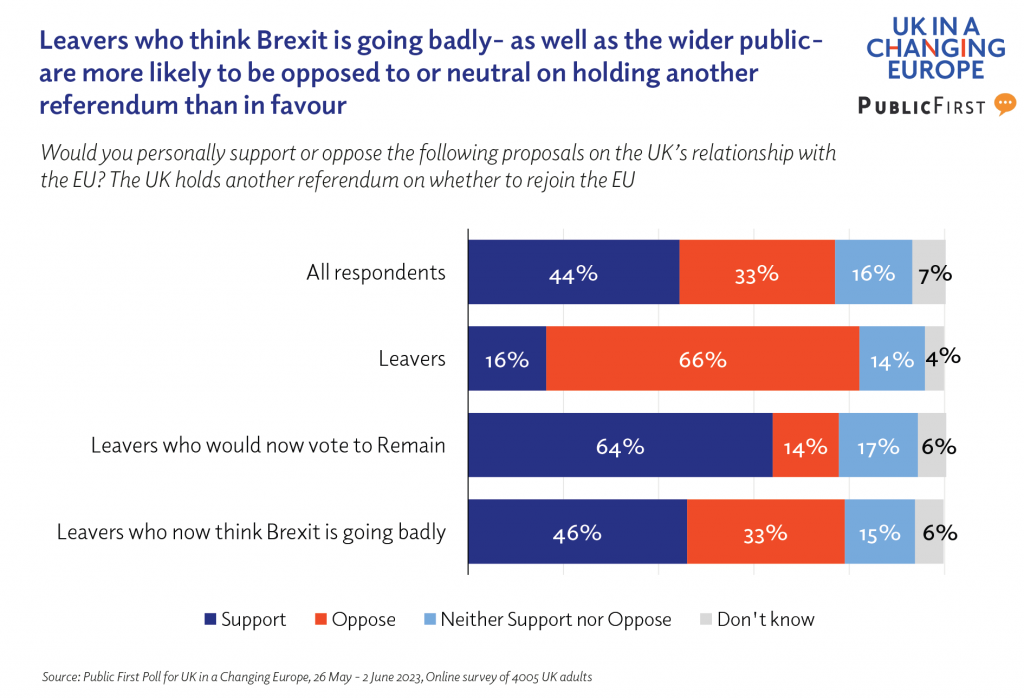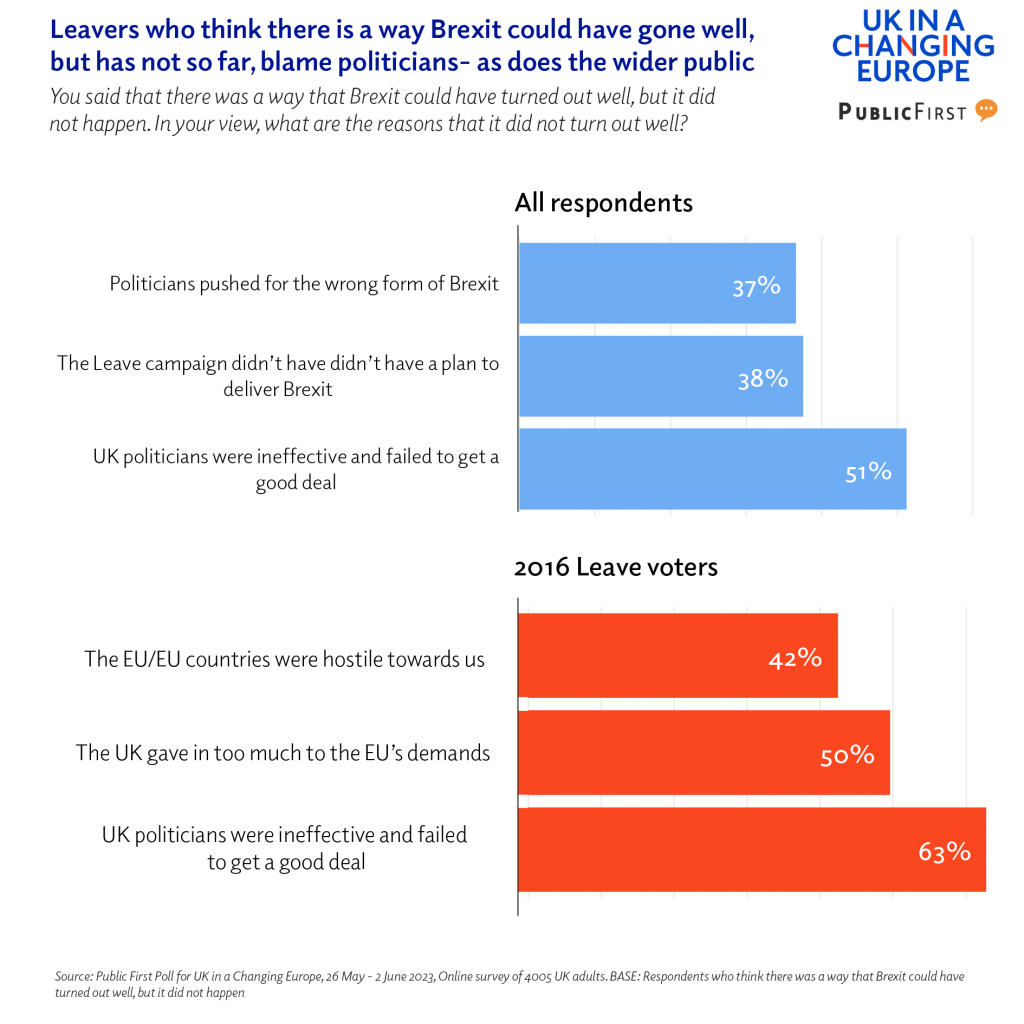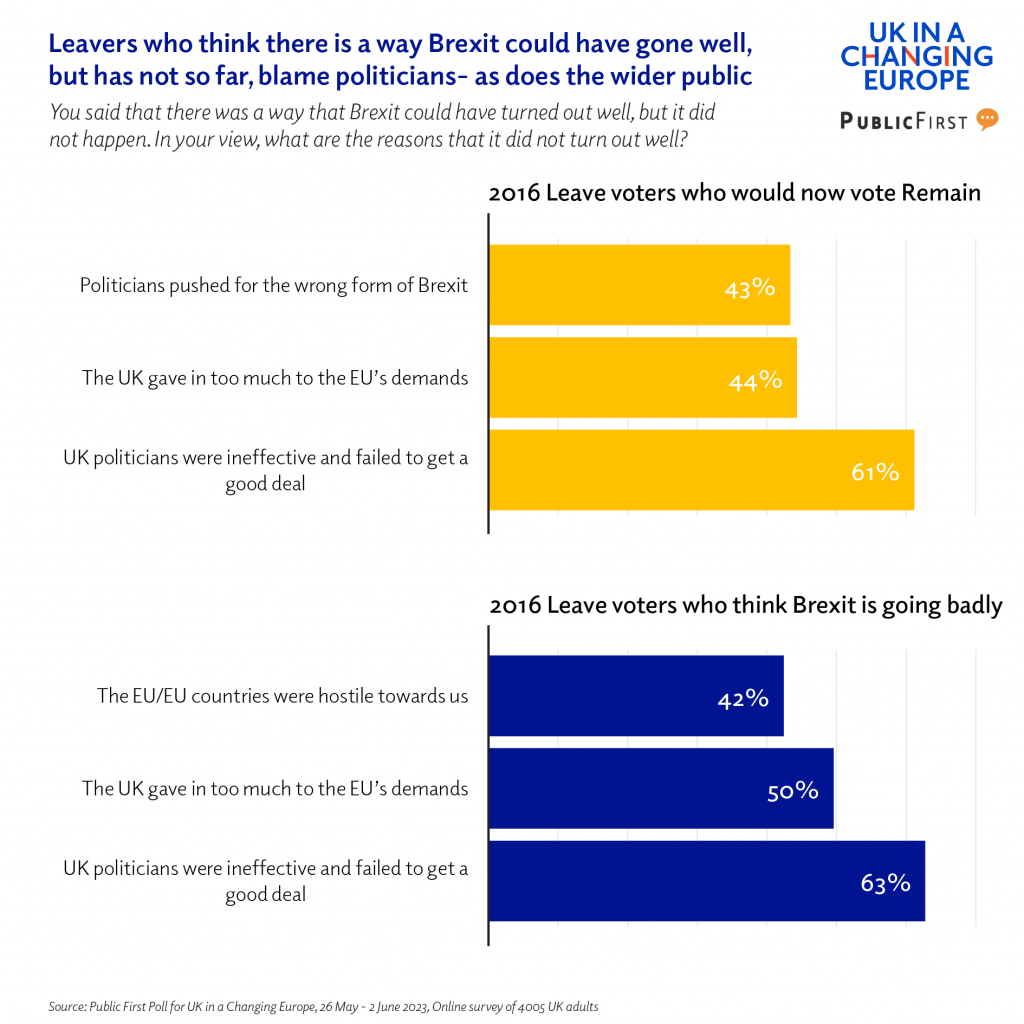Seven years, it’s said, is about how long it takes to begin to regret life-changing decisions. Seven years on from the EU referendum, there are signs that some voters are certainly suffering from an ‘itch’ and questioning the choice they made in 2016. Recent YouGov polling indicates that 56% of respondents now say that it was the wrong decision to vote to leave the European Union.
Some have suggested voter replacement as an explanation for this shift. According to this theory, rather than Leave voters changing their minds, shifts in the polls can be attributed to younger voters, who are more likely to support Remain, replacing older, Brexit-leaning voters in the electorate. This is clearly a real phenomenon and an important trend which, were it to continue, would shift the dial still further.
Yet recent swings in the polls have been too large to be explicable simply via voter replacement. By late 2022 70% of Leave voters felt that leaving the European Union was the right decision – down from some 90% before Theresa May’s snap election of 2017. YouGov estimated in February of this year that those who now regret their vote to Leave account for 7% of the voting public.
From these stats, is easy to surmise that legions of Leave voters have shifted to ‘Remain’ and are deeply regretful of the choice they made seven years ago. But ‘Bregret’ is more subtle than this.
In a recent survey we carried out with Public First, only around 4% of the 2016 Leave cohort think Brexit has gone badly and believe there was no way it could have ever worked. Even of those 2016 Leavers who think Brexit is going badly, around 70% think there was a way it could have worked. Brexit, in other words, was undermined – be this by the pandemic or the war in Ukraine, or incompetence in Downing Street or interference from the Civil Service.
Furthermore, a considerable proportion of Leavers who think Brexit is going badly (48%) either oppose or are undecided on the idea of another referendum – as are almost a third of 2016 Leave voters who say that, knowing what they do now, they would vote Remain.

What this tells us is that ‘Bregret’ is not particularly down to a swelling of Remain sentiment, support for re-joining the EU, or a feeling Brexit will never work. 72% of Leavers in our survey still say that, knowing what they do know, they would vote how they did in 2016. Instead, it is a mixture of regret about some of the consequences of leaving the EU, animosity towards the political class, and optimism that things can turn around. Indeed, only 10% of those Leavers who think Brexit is currently going badly think that ‘nothing can make Brexit work in the future’.
This is reinforced by the fact that many of the concerns of Leavers who are dissatisfied with how Brexit has gone – increased difficulty trading, anger with the current government, or frustration with the frostiness of the UK-EU relationship – can be rectified. The election of a new government which is willing to work more closely with the EU and walk back some of the current government’s red lines might help assuage their concerns.
And those Leave voters who are anxious about Brexit’s economic impacts – just 29% of Leavers overall think Brexit has had a negative economic impact, compared to 67% for those Leavers who have switched to backing Remain – may reassess their opinions. With inflation high and interest rates rising, it is easy to look for things to blame. How might opinions shift if the economy recovers, and they start to feel more prosperous?

There’s also the fact that a quarter of leavers think it is still too soon to tell whether Brexit has gone well or badly. Leavers are still more likely to suggest leaving the EU will turn out well in the long-run than not, suggesting some optimism that the negative impacts of Brexit can be rectified.

There is little basis in these numbers to think that Leavers as a whole would like the decision to leave the EU to be reconsidered. Dissatisfaction with how Brexit has turned out thus far does not translate into support for re-join, or for another referendum. Indeed, 60% of those Leavers who think Brexit is going badly say that, if the Opposition were to propose holding another referendum, it would have either no or a negative impact on their likelihood to vote Labour at the next election.
Rather, for many, Brexit is retrievable, with the right political leadership, a closer relationship with the EU, and better economic outcomes. A majority of both Leavers who would now vote Remain and dissatisfied Brexiteers simply wish we’d move on and talk about something other than Brexit. Regret, in other words, is not re-join.









